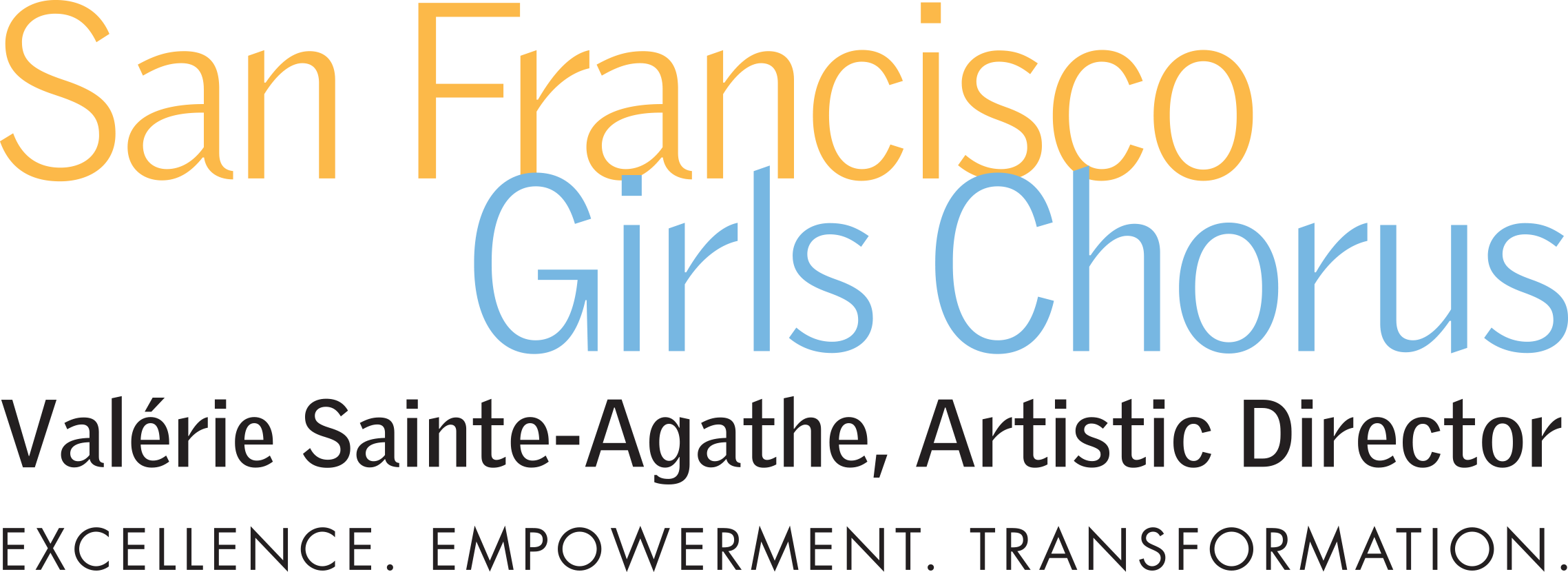Postcard from David Harrington
To my young colleagues of the SF Girls Chorus, and your community and families, Over the years there have been moments in our work when it seemed like the very best thing we could possibly do is to work with young singers and musicians, and I would say that this feeling has increased as time has gone on. Right now not only do we have our friend composer Sabha Aminikia here in SF but we also have our relationship with your amazing group of young musicians and your fabulous conductor Valerie Sainte-Agathe.
It seems like one of our roles in life and in music is to be involved in learning new musical vocabularies together, and new sociological meanings too. At tonight’s concert one of the things I’m very excited about is for all of the SF Girls Chorus to hear Mahsa Vahdat, this incredible singer from Iran: https://www.youtube.com/watch?v=IoevSSuO-jY
I think you are going to notice right away that there’s something about the way she sings and uses her voice that is beyond the notes, beyond the musical things. When you learn more about what she’s experienced in her life, you will discover that’s in part what informs her voice and the way she makes music. I want everyone to hear Mahsa!
It takes more than a love of expression and music to be able to be a musician. And it takes more than a lot of practice. You also need a lot of support from your community. Some people don’t get that support and they still are able to thrive, but most of us need as much support from our significant others, our parents, or whoever is part of our community – and those people need support as well. That’s one of the things I’m noticing right now: how important it is for our community to be together and to help each other any moment we can.
I started playing violin at age 9 as part of a public school program in Seattle. I had grown up hearing Dick Kesner and his Magic Stradivarius every Saturday on the Lawrence Welk Show: https://www.youtube.com/watch?v=A8jP5PI-hFc
…and I just loved the sound of the instrument! So my parents rented me a violin and it wasn’t too long before I was playing in the Seattle “Little” Symphony, then the “Junior” Symphony, and then the Youth Symphony, of which I was a member until I was 17 years old. We had been living in a suburb but in order to be able to play quartets three or four times a week, in high school, my parents moved to the University District, which meant that I could go to Roosevelt High School there too, which had a really amazing music program. Every kid in the world needs a Ronald Taylor – that’s the name of my high school music teacher. He just got it. He knew how hard it was for me to be in high school, studying English and Geometry when what I really wanted to do was play string quartet music all day and all night. This was during the American war in Viet Nam era –my PE teacher was a sort of frustrated drill sergeant (that guy was impossible…); but Mr. Taylor established a chamber orchestra and I got credit for playing quartets and gave me cut slips to get out of PE class. That’s how I got through high school.
The first string quartet I ever heard when I was twelve years old. I had become a member of the Columbia Record Club, and I was reading a biography of Beethoven, and I was right up to the part about the late quartets when the Budapest Quartet released their recording of the E-flat major quartet, Op. 127. That was the first string quartet I ever heard in my life, and I LOVED that sound! The opening chords are inscribed in my heart even now. https://www.youtube.com/watch?v=0tBRQSlBkBk
So I went down to the public library and checked out the music, and I called up three friends from the Seattle Youth Symphony, we got into a practice room, and I’ll never forget that opening chord – for maybe two seconds it sounded like the record! So ever since I was 12 years old, I’ve believed in the power of that two seconds. That’s all it takes.
Trying to provide that kind of experience for my own family, my friends and our audiences – that’s what it is that we all try to do with every note we get to make.
One last word to the young singers of the SFGC: Don’t be afraid to ask any question of your elders. When you’re around other musicians, if there’s something you think they know that you might be interested in learning, don’t be afraid to ask them! There are no barriers in music. Age and experience don’t matter. I would welcome any question from anyone in the SF Girls Chorus, and I know everyone in Kronos – and Sabha – feel the same way. If there’s any way we can help, we will do it. Just don’t be afraid. All of the people we work with are musicians for life. We know how tough it can be to be a musician. All over the world there’s a very beautiful, generous community of people who are trying to further the role of music in our society. For us in the Kronos Quartet, to be in the company of such wonderfully dedicated young musicians is a privilege and we look forward to it every time.
Until tonight, David Harrington Violinist, Founding Member, Kronos Quartet


